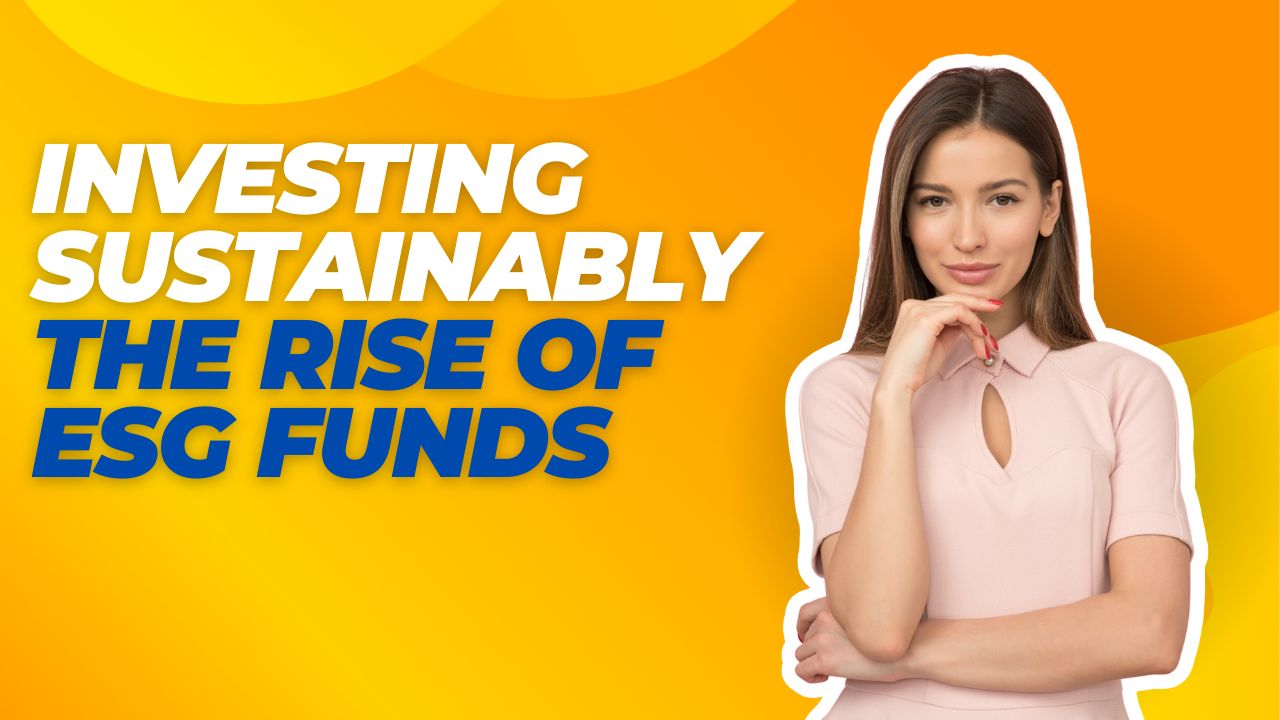Investing Sustainably: The Emergence of ESG Funds
ESG funds is the newly identified driving force for sustainable investment. ESG investing, over the last few years, has gained a lot of momentum, and it will be about more than just financial returns but also about how investment has a deeper impact on society and on the environment. This has struck a chord with a growing number of investors trying to get their financial goals in line with their personal values.
The rise of ESG funds is attributed to various factors, including increased public awareness regarding international issues of global warming, class inequality, and the lack of observance of good corporate practices. Through social media and advocacy organizations, today’s investors have more information than ever. As a result, many individuals and institutions are revisiting their investment strategies to promote responsible practices. This is a manifestation of the greater cultural push toward consumption and corporate responsibility practices.
Institutional investors have also contributed to the growth of ESG funds. Providers such as pension funds and insurance companies are becoming more and more stakeholders that increasingly implement ESG requirements in their investment framework. Again, this is a result of increasing understanding among these investors that sustainable practices can mitigate certain risks and drive superior long-term returns. For instance, companies with better ESG profiles tend to be far better placed to handle regulatory changes, reputational challenges, and changing consumer preferences. This has led to reviewing some of the traditional risk models and to the acknowledgment of the fact that sustainability forms an integral part of financial performance.
In addition, regulatory advancements have accelerated ESG investing. Today, governments and regulators across the globe are demanding transparency in corporations’ sustainability practices. To this end, for example, the European Union has come up with the Sustainable Finance Disclosure Regulation (SFDR), which will oblige financial services to reveal the sustainability risks that their investments entail. While this type of regulation enhances accountability, it will also make companies practice sustainability and, therefore, encourage a positive feedback loop for ESG investments.
Performance-wise, too, ESG funds have helped drive up their popularity. While many people did express skepticism that sustainable investing would compromise returns, there have been numerous studies which have shown that ESG funds can deliver competitive performance relative to traditional investment strategies. This has blasted the myth that ethical investing is inherently less profitable to attract a greater pool of investors. Growing proof indicates that strong companies with superior ESG practices show resilience during crises, especially in turbulent markets, thereby making them attractive investments for risk averse investors.
Now, with greater ESG data and analytics available, there are actionable information opportunities for investors to make wiser decisions. The platforms and indices provide insights into how companies stand in terms of their ESG performance in order to help investors find better investment alternatives and compare them. Democratization has enabled the shift of control and participation of retail investors in sustainable investing matters from institutional players to ESG criteria.
That notwithstanding, like other types of investing, ESG investing has its challenges. For instance, there exist “”greenwashing” where companies exaggerate or misrepresent their sustainability efforts, and the seriousness of integrity in ESG funds is greatly posed. Investors must keep their eyes open and seek transparency in reporting so as to really ascertain that the kind of investment made is one that really reflects sustainable practices.
Conclusion
ESG funds herald a new change in the investment landscape. For more and more investors moving in on both these frontiers-each on sustainability and financial performance-ESG investing is bound to be a trend that continues upwardly. ESG funds-that not only contribute to a better future but redefine what it means to be a successful investor in this new age-are a capital alignment with positive societal impact. This significantly goes a long way in reshaping global markets and motivating businesses to adopt more responsible practices as the trend continues upward.
Share this content:



